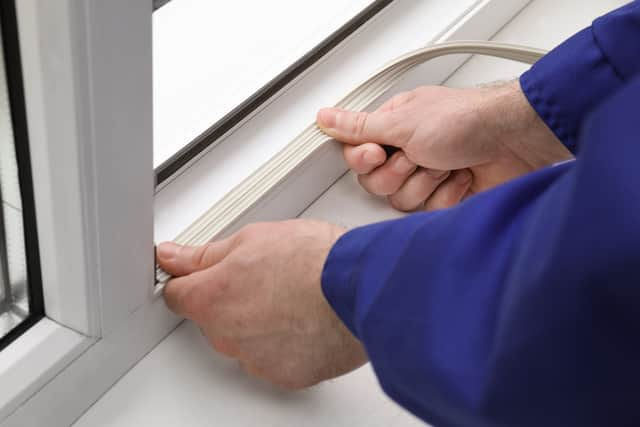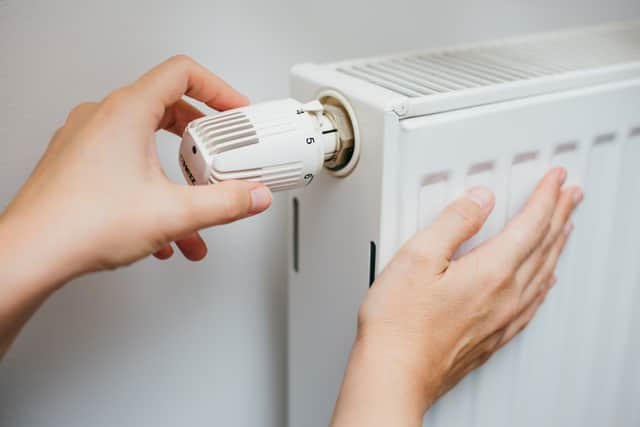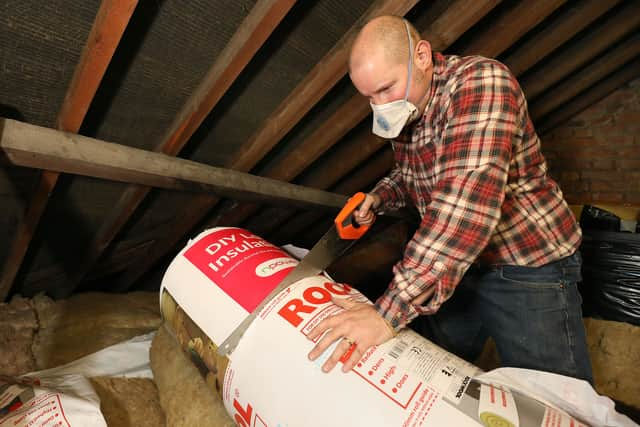How to save energy at home: 10 ways of using less gas and electricity as energy bills ‘to rise’ this winter
and live on Freeview channel 276
One of the biggest drivers of the cost of living crisis over the last two years has been energy bills.
While they came down from their peak in July - and are set to go down once again in October - gas and electricity costs still remain well above where they were before the energy crisis began in the autumn of 2021. It comes after the post-Covid rush for energy and Russia’s invasion of Ukraine reduced global supplies, forcing wholesale prices up.
The situation has eased somewhat, but people are still likely to be paying more to heat and power their homes this winter. This is because the government has not announced a successor to the £400 energy bills grant - although some support has been made available to low-income households.
It will heap pressure on people whose incomes have been stretched to breaking point by severe inflation and surging interest rates. These twin economic forces have driven up the cost of everything from the typical food shop to mortgage repayments.
So, with predictions of another tough winter ahead of us, what can you do to slash your energy bills? NationalWorld has put together a quick guide.
Energy bills quick wins
- Learn how to read your meter
Knowing what type of meter or meters you have for electricity and/or gas and how to read them will not only stop you from being overcharged, it may also help you to save money. For example, if you have an E7 or E10 meter that gives you a day and night rate for your power, you could save money by using your appliances at ‘off peak’ times when energy demand is lower.
It’s also important to know how to read them when the level of the Ofgem energy price cap changes. Given unit prices are going down from 1 October, providing your supplier with an accurate meter reading just ahead of the change (on 30 September, say) will make sure you’re benefitting from the lower rate exactly when you should be. Without that reading, the provider may overcharge you as they will have to estimate your bill - unless you have a smart meter.


Another thing to be aware of is that the National Grid is once again going to financially incentivise consumers to move their energy usage away from peak times this winter. The Demand Flexibility Service was introduced last year when there were fears the UK could run out of gas.
- Turn off your devices
It’s the bit of advice we’re always given but probably forget to follow. According to the Energy Saving Trust - an independent organisation that promotes energy efficiency and sustainable energy use - turning devices like TVs and games consoles off completely rather than leaving them on standby could save you £60 a year.
- Don’t overfill your kettle
The UK is a nation of tea drinkers. But according to research by the UK Tea and Infusions Association (UKTIA), eight in 10 of us are overfilling our kettles. By keeping the volume of water down to a minimum (or inveting in a teapot), you can save yourself a cool £12 a year.
- Watch your shower time
Keeping your shower time to four minutes - the equivalent of a long pop song - could also lop money off your annual bill. By doing this, you could stand to save yourself £75, the Energy Saving Trust says. If you’re lucky enough to own a gym membership, you could maximise this saving by showering after your workout or swim.
- Keep tabs on your appliances
Appliances, especially ‘wet’ ones like dishwashers and washing machines, are notorious for burning through energy. The Energy Saving Trust reckons you could shave £28 off your annual energy bill by keeping your washes to 30-degrees and reducing the number you do per week by one. Avoiding the tumble dryer could save you £60 a year. And if you have a dishwasher, only running it once it’s full can save roughly £15 a year.
- Draught proofing
Getting rid of jets of cold air which come through windows and doors could mean you’re less likely to need to put your heating on. And that could save you a lot of money.
According to the Energy Saving Trust, professionally-fitted draught proofing in a typical three-bed semi-detached home could shave £125 off your annual energy bill. The only catch is it may cost more than £223 for installation - although the savings mean it’ll take less than two years for it to pay for itself.


If you’re confident in your own DIY abilities, you could save £215 over five years by buying draught excluders for just £3 online. So, opting for the professional route means you will make greater savings over the longer-term - but the upfront cost may prove to be offputting.
Homes with chimneys can also benefit from getting a specific draught excluder for them. These £20 devices inflate inside the chimney stack and can lop £90 off a typical energy bill.
- Get to know your boiler
Two quick changes you can make to your boiler could save you more than £300 a year, according to heating experts. Heating Hub - an energy efficiency advisory firm - recommends turning down your flow temperature to save money.
This setting regulates how hot water is when it exits your boiler on its way to your radiators. While it doesn’t change the temperature of your home in itself, it alters the speed at which it warms up.


According to Heating Hub, most condensing combi boilers in the UK have never been shifted from their factory setting - around 80C - meaning they are unlikely to be operating at their peak efficiency. If you see steam coming out of the flue outside your home, it’s a sign that your flow temperature is turned up too high. By turning down this heat setting, your boiler can recycle more heat rather than ejecting it outside through your flue.
Another trick with your boiler is to turn off its pre-heat function. This mechanism keeps a small amount of water hot in case you need hot water at a moment’s notice. While turning it off means it will take longer for the water to heat up for your shower or washing up, Heating Hub estimates it could reduce your gas usage by between 5% to 10%.
- Insulate your hot pipes
One minor and cheap measure that could help you make a small saving is to fit foam insulation on any exposed hot water pipes you have in your home. Spending £15 on tubes at a DIY store could deliver £9 in savings every year, meaning the measure will pay for itself relatively quickly.
If your home has a hot water cylinder, a similar trick is to give it a jacket. It should already have 25mm of insulation, but adding another 55mm at a cost of £16 could save you £70 a year.
Medium-to-long term energy bill savings
These hacks will all require professional work and so you will not make an instant saving on your energy bills. Instead, you will be likely to see positive results in your energy bills over a longer-term period.
- Invest in insulation
Better insulating your home means you will lose less heat in colder months, and will therefore not need to reach for the thermostat as often. One type of insulation the Energy Saving Trust recommends is cavity wall insulation.


According to the organisation, a third of the heat lost from an uninsulated home passes through the walls. If you’ve got a cavity in your wall - and most houses do - it can be filled with insulation that’ll stop heat escaping like this. While it will set you back around £1,000, you could stand to save £395 per year.
Those in flats will have to run the project by their fellow block residents or the building’s landlord. But given most flats are only likely to have one or two exterior walls, the cost-to-annual savings ratio is likely to be even better.
Loft insulation is another important way to cut down on your energy usage. The Energy Saving Trust estimates that a quarter of the heat from an uninsulated home is lost out of the roof space.
Getting at least 270mm of insulation into your loft will greatly reduce this heat loss. But don’t expect a dramatic overnight saving. For a standard three-bed semi-detached house, it’ll cost roughly £465 but will only deliver a £25 annual saving.


If you have a four-bed detached property, the cost could be £1,100 and will only deliver an average saving of £40 per year. And if you live in a flat that’s not on the top floor, or is but hasn’t got a pitched roof with loft space above it, you will have to rely on those living above and below you to keep the warmth in.
There is a government grant scheme for getting insulation installed. To see if you’re eligible, you should read NationalWorld’s guide.
- Solar panels
Being less reliant on fossil fuels means you will be better shielded from the kinds of price shocks we’re currently seeing on global energy markets. But investing in things like solar panels carries a large up-front cost, meaning it’s a measure many people will be unable to afford.
If you can do it, the Energy Saving Trust says a typical solar panel installation will set you back £6,500. However, it will save you a significant amount of money - £505 in London, £475 in Manchester and £450 in Stirling, the Energy Saving Trust says.
Alongside solar panels, you could also install a wind turbine on your home, while changing your heating system away from a gas boiler can be more economical. But again, these sorts of projects can be extremely expensive, as your home may need to be adapted to fit them in.
Comment Guidelines
National World encourages reader discussion on our stories. User feedback, insights and back-and-forth exchanges add a rich layer of context to reporting. Please review our Community Guidelines before commenting.
